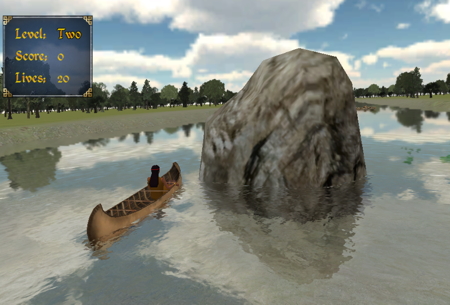It’s not easy being the parent of an adolescent under any circumstances. Parents want to protect and care for their children. Youth want to experience life, to become young adults.
 This conflict is even greater when the child has a disability. Parents often see their child as vulnerable because of the disability and feel an even greater responsibility to take care of him or her. At the same time, their teen wants to be like everyone else. That’s one of the reasons our games are played in grades 9-12 by students with learning disabilities. Just because the teenager has a disability doesn’t mean she isn’t like other teenagers, wanting to play video games, date, go to parties, get away from parental supervision, earn her own money, drive a car and all of the other things that matter to a teenager.
This conflict is even greater when the child has a disability. Parents often see their child as vulnerable because of the disability and feel an even greater responsibility to take care of him or her. At the same time, their teen wants to be like everyone else. That’s one of the reasons our games are played in grades 9-12 by students with learning disabilities. Just because the teenager has a disability doesn’t mean she isn’t like other teenagers, wanting to play video games, date, go to parties, get away from parental supervision, earn her own money, drive a car and all of the other things that matter to a teenager.
That seems to be even more the case with students who have ‘invisible’ disabilities like learning disabilities, chronic diseases or mental health issues.
If a student is visually impaired or uses a wheelchair, that is going to be pretty obvious to his or her peers and the student may have no option but to ask for special assistance.
What NOT to do
If you find the transition to adulthood easy, your family is the lucky exception. In the next few posts, I’ll offer several efforts to help you on your journey. These include knowledge of adolescent development, services for youth making the transition from home & school to work & independent living and resources for continuing education on issues in adolescence.
One sure way to have conflict in your home (or classroom) is to insist that adolescents act younger than their age – do worksheets, be home before dark, only watch G-rated movies.
Get a job, kid!
Part of becoming an adult is being able to support yourself. Adolescents often have an attitude and act as if they know everything. Adolescence is also a time when people are feeling very insecure. They are making a lot of decisions for the very first time and are afraid of failure. It’s that old vicious circle. People don’t want to hire youth with no experience but how do you get experience if no one will hire you? I gave a few tips for youth in general in a previous post, but the fact is that getting that first job IS harder for youth with disabilities.
Some very good advice from the 2005 Rehabilitation Service Administration Project Director’s conference, from Geri Jewell, who you may remember as the actress with cerebral palsy on the comedy Facts of Life (that part wasn’t an act, she really does have cerebral palsy).
“I used my disability to get out of everything I ever thought I would fail in – foreign language, science, sex education.“
Haight, de Bremond & Richardson-Crooks advise:
“You can have a terrific website, you can send out all the email in the world but what we have found really works is that you need a concerned adult to look the youth in the eye and say, “You can do this. You should check this job opportunity out.”
Even more than for youth without disabilities, that experience is important. According to Jennifer Sheehy Keller, in a Rutgers University survey,
32% of employers said that they did not have even one job that could be done by a person with a disability. Further, only 2% of youth with disabilities participate in work-based programs such as mentoring or internship programs.
What TO do
Getting internships or volunteer experience can help. Once a youth with a disability has successfully performed in a job, whether it is in an office, a factory or a store, it is very convincing to respond to an employer who wonders whether a person with a disability can perform a task with, “I know I can because I have done it before.”
In summary, youth with disabilities may be afraid to fail, employers generally are not very knowledgeable about disability or making accommodations for people to hold jobs, and it is critically important for the adults in their lives to provide support and encouragement.

